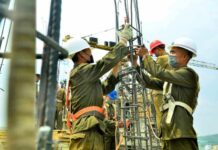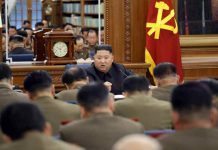As expected, North Korea has mobilized its United Front Department this election season to try and generate an ‘anti-Park Geun Hye’ movement in the South, but it has had little effect. Indeed, it is having the opposite impact.
The reason is, of course, because the South Korean people can no longer be moved by North Korea’s “do you want war or peace” claims, while Pyongyang’s attempts to boost opposition candidates do little more than arouse hostility, if they arouse anything at all. For example, this time around it was Park Geun Hye who got a ratings boost when North Korea attempted to raise tensions over the Northern Limit Line in the West Sea.
Kim Young Hwan, a researcher with NKnet, commented on a recent TV show, “The North Korea variable will not have such a big impact this year. The idea that North Korea is on the opposition candidate’s side now rouses antipathy in the South Korean people. Eventually, it puts Park in a favorable position.”
In other words, although, months after the Cheonan sinking of March 2010, North Korea raised the “war or peace?” choice once again, causing young centrists to lean towards the progressives in regional elections, the effect North Korea can have on major elections is seemingly far less significant.
There was almost no influence on the April 11th legislative election this year, and the 2nd inter-Korean summit, even though it was held just two months ahead of the presidential election in 2007, had no effect, as victory still went to the conservative Grand National Party (now Saenuri Party).
Therefore, we can say with some certainty that North Korean election intervention no longer works. Indeed, in some cases, it actually improves the conservative candidate’s fortunes.
Nevertheless, North Korea is persistent. According to one government official, since 2007 there have been about 57 attempts per month on average, rising to 143 times in the run-up to this presidential election.
The Anti-Imperialist National Democratic Front (NDF), an arm of the Chosun Workers’ Party, recently issued a manifesto saying bluntly that, “If the Saenuri Party grasps power once again, inter-Korean relations will worsen and there could be a second Korean War.”
But in truth, the effect in the South doesn’t actually matter that much; part of the aim is to strengthen North Korea’s dictatorship itself. In other words, propaganda organizations are competing to show loyalty toward Kim Jong Eun.
Cheong Sung Chang, a senior researcher with the Sejong Institute, told Daily NK, “North Korea’s propaganda outlets and propaganda organs are only doing their best to intervene in the presidential election because they are locked in a loyalty competition.”
“North Korea is a an absolute dictatorship and the United Front Department has to do whatever it takes to be a part of that,” he added.




















